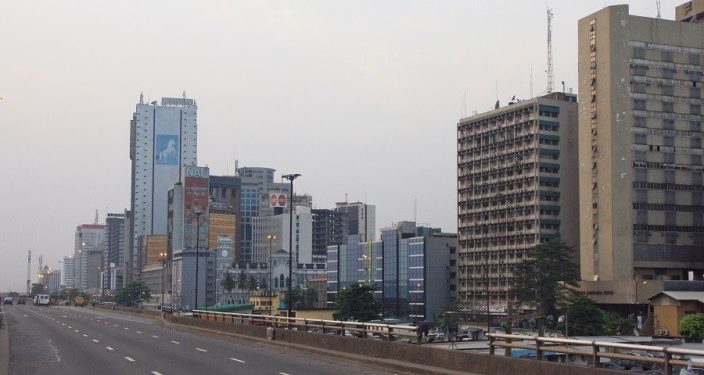Nigerian banks’ return on equity lags behind Kenya, South African peers
Nigerian banks lagged behind some of their Kenya and South African peers in terms of how much profit they generated with their shareholders’ equity in the first half of this year.
Research by BusinessDay on the five best-performing banks in Nigeria, South Africa and Kenya showed Equity Group Holdings (a Kenyan bank) led its African peers in terms of return on equity (ROE), a metric that measures a bank’s profitability by revealing how much profit a bank generates with the money shareholders have invested.
Among banks surveyed in Kenya, South Africa and Nigeria, Kenya’s Equity Bank, with a market capitalisation of $1.53 billion, had the highest ROE of 28.90 percent in H1 2022, while South Africa’s Capitec, with a market cap of $13.01 billion (222.19 billion ZAR), had the second-best ROE of 27 percent.
“Nigerian banks have to deal with economic shocks, short credit cycles and persistent problems in the oil sector. They also have to deal with policy actions, policy uncertainty and regulatory risk,” said Mahin Dissanayake, director for Europe, Middle East and Africa bank ratings at Fitch.
“Nigerian banks compared to other markets operate in a volatile environment,” Dissanayake said.
Investors say a higher ROE indicates that a company is effectively using the contributions of equity investors to generate additional profits and return the profits to investors at an attractive level.
In terms of ranking, Nigeria’s Guaranty Trust Holding Company was third, with a market cap of N582.7 billion and had an ROE of 17.90 percent in H1 2022.
“Unlike its African peers, Nigerian banks were unable to deliver higher returns to shareholders as profit was supported by foreign exchange gains, income from investment securities due to gradual improvement in yield environment and loan accretion,” Tunde Ogunbiyi, an audit expert attached to one of the Big Four accounting firms, said.
BusinessDay’s findings also showed Nigeria’s United Bank for Africa (UBA) and South Africa’s ABSA Group Limited both had the fourth-best ROE of 17.17 percent in H1 2022, followed closely by Nigeria’s Zenith Bank with an ROE of 17.50 percent.
South Africa’s Standard Bank Group and Nedbank recorded ROE of 15.3 percent and 13.6 percent in H1 2022 respectively.
Another major bank in Nigeria, FBN Holdings (the holding company of First Bank of Nigeria), with a market capitalisation of N367.9 billion, had an ROE of 12.80 percent in H1 2022.
“The harsh regulatory environment and economic downturn are preventing the management of Nigerian banks from generating enough growth from their equity financing,” Ogunbiyi said.
Tajudeen Ibrahim, director of research and strategy at Chapel Hill Denham, believes Nigeria’s current era of lower interest rates is having an effect on banks’ interest income.
“In the first quarter of the year, interest rates were lower than the second quarter of the year. That could make the banks less appealing in terms of their ROE relative to their peers in other African countries,” Ibrahim said.
Ibrahim advised Nigeria’s economic managers to fix the challenges concerning ease of doing business.
He said: “The cost of doing business in Nigeria needs to go down substantially, and when it does, banks will begin to post stronger prices.
“When you have diesel costs affecting profitability in Nigeria, there is no way you can be at par with peers in other African countries where they are not seeing significant pressure on the cost front.”
Also, a global rating agency, Fitch Ratings, had predicted Nigerian banks’ operating environments could deteriorate in 2022–2023 as adverse global economic conditions feed through to the local economy.
Fitch said the pressures on banks’ profitability and asset quality would be higher than initially expected due to high inflation and a potential economic slowdown. The banks are expected to face these headwinds despite higher oil prices.
The rating agency however does not expect the banking sector to experience a material shock.
The Monetary Policy Committee of the Central Bank of Nigeria has raised the Monetary Policy Rate, the key interest rate, twice this year, with analysts saying another hike looks likely in September.
“We expect interest rates to increase further given accelerating inflation and tighter global financial conditions,” Fitch said. “This should support the banks’ net interest margins, which have been dented by low rates in recent years.”
Agusto & Co, a Nigerian credit rating agency, has projected Nigerian commercial banks to grow pre-tax ROE by 23 percent at the end of 2022 financial year.
“Nevertheless, we note that the forthcoming elections and growing budget deficit have forced the FGN to modify several extant tax legislations which will moderate the banking industry’s profits. Overall, Agusto & Co expects the industry’s pre-tax return on average equity to increase to 23percent (FY 2021: 20.6 percent) in FY 2022,” Agusto & Co said.








